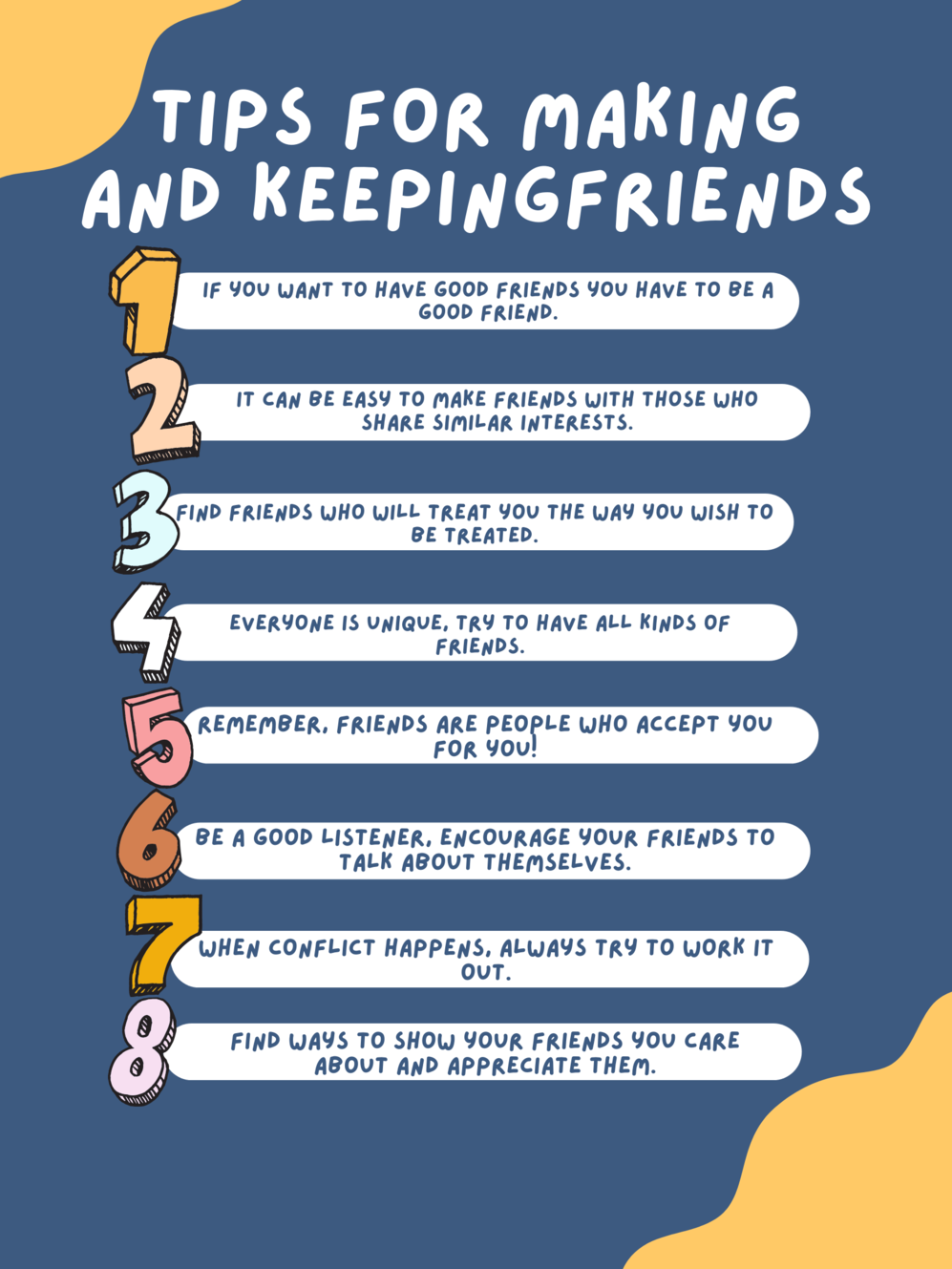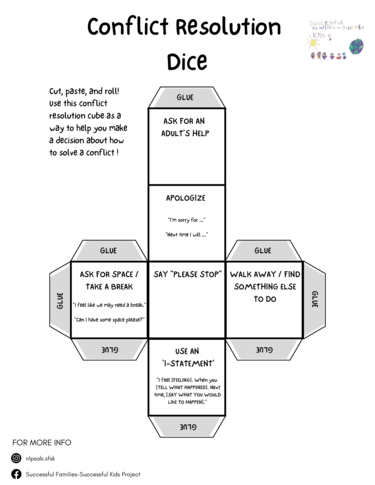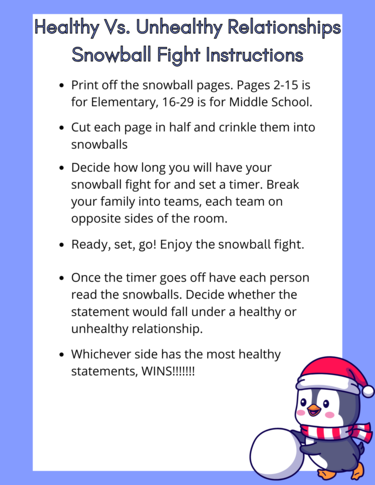NLPS Developed Resources
Our Mental Health Team (Student Advocacy Counsellors and SFSK Wellness Coaches) have developed the following resources for our NLPS families:
Tips for Making and Keeping Friends

This poster provides a visual of tips for making and keeping friends.
Curated Resources
All of the resources below have been reviewed and recommended by our Mental Health Team (Student Advocacy Counsellors and SFSK Wellness Coaches).
- 21 Family Bonding Activities to Strengthen Your Family's Connection
self-sufficient kids - Healthy Relationships
love is respect
Learn about healthy relationships and take a quiz to determine if your relationship is healthy. - Healthy Relationships Training Module
PREVnet
5 online modules focusing on different aspects of healthy relationships. - How to Set Healthy Boundaries
Positive Psychology
Read about healthy boundaries and some examples of what they look like. Includes worksheets to help you learn about and set boundaries. - Safety Rocks
Canadian Centre for Child Protection
Activity Book for Grades 3 & 4 that helps children learn ways to stay safe. - Solve Problems with The Blueprint
Yale Centre for Emotional Intelligence
A worksheet with steps that help children or adults identify problems, the emotions associated with them, and how to address them.
- Am I in a Healthy Relationship?
Nemours TeensHealth - Bullying: How to Help Your Child
Alberta Health Services - Building Healthy Family Relationships
Kids Help Line
Healthy family relationships are important for your child’s wellbeing and development. Building strong family relationships supports them to cope with challenges and to learn to be independent. - Characteristics of Healthy and Unhealthy Relationships
youth.gov
Respect for both oneself and others is a key characteristic of healthy relationships. In contrast, in unhealthy relationships, one partner tries to exert control and power over the other physically, sexually, and/or emotionally. - Consent and Your Teen
Alberta Health Services
Tips for talking to your teen about consent. - Family Violence Supports
Government of Alberta
Learn where to turn when faced with family violence or domestic violence, and know your rights and the law. - Healthy Friendships and Relationships
State of Connecticut
Learn more about different kinds of healthy relationships and how to identify healthy friendships. - Healthy Relationships are About
Canadian Centre for Child Protection
Learn about the qualities of healthy relationships and unhealthy relationships. - Healthy Relationships Toolkit
Canadian Red Cross and Healthy Child Manitoba
Includes resources and activities to help learn about healthy and unhealthy relationships. - How to help your child with healthy friendships
Alberta Health Services - How to Teach Children About Healthy Relationships
High Speed Training
Outlines the characteristics of healthy and unhealthy relationships and provides tips for teaching children and young people about the subject in an age-appropriate way. - How the Teen Brain Transforms Relationships
Greater Good Magazine
Learn how changes to the adolescent brain transform relationships with peers and parents. - Kelso's Choice
Teaches children the difference between big problems and little problems. - Making Good Friends
HelpGuide.org
Looking to build new friendships? These tips can help you meet people, start a conversation, and cultivate healthy connections that will improve your life and well-being. - My Friend is Unsafe At Home
Kids Help Line
You might learn (or suspect) a friend is experiencing family violence and not know how to support them. Here are some things that can help. - Preventing Youth Dating Violence
University of Calgary - Relationship Violence
RCMP
Learn more about different types of relationship violence. - Stand up to bullying: Tips for families with teens
Alberta Health Services
- Teaching Kids How to Deal with Conflict
Child Mind Institute
Learn to help your child deal with the emotions that come from conflict, and improve their problem-solving and communication skills. - Teaching Your Child about Consent
Alberta Health Services
Tips and resources for talking to your child about consent. - Tips for Building Health Relationships with Your Teenagers
CAMH
10 tips for approaching and communicating with your teens. - What Does a Healthy Relationship Look Like?
New York State
Healthy relationships involve honesty, trust, respect and open communication between partners and they take effort and compromise from both people. There is no imbalance of power. - Why Curious People Have Better Relationships
Greater Good Magazine
Research suggests that being curious might be a social glue that strengthens our relationships.
The books listed below can be requested at your local library or purchased at the retailer of your choice. Many are also available as audiobooks and we have included read aloud YouTube videos when available.
The Not-So-Friendly Friend: How to Set Boundaries for Healthy Relationships
by Christina Furnival (Read Aloud)
- Healthy Boundaries and Relationships for Teens
Raise a Little Hell Podcast
- 20 of Our Favorite Videos for Teaching Kids About Friendship
We Are Teachers


